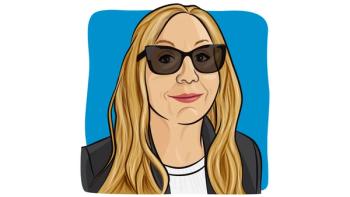
- Summer 2019
- Volume 1
- Issue 1
Turning to Canada
When a Guatemalan family faced cancer, they turned to the country where they had dual citizenship — and to each other — for help.
I lived a busy life in Guatemala, and my years growing up in Canada weren’t at the front of my mind.
I was working as general manager for the Guatemalan Zoo, and my husband, a former professional soccer player, was serving as sports director for the Guatemalan National Soccer Federation. Our children were healthy, happy and attending school.
But I’ll be forever grateful for what my Canadian citizenship meant when things changed in the summer of 2017.
We were on a vacation trip when Pablo, my 16-year-old, started complaining about nausea and stomach discomfort. We took him to the hospital and were not prepared for what we were told: He had chronic myeloid leukemia, a rare leukemia in children. We nearly lost him due to his very high blood counts but, fortunately, he responded well to the treatment he was given, and he was released from the intensive care unit after 11 days.
Three months later, Pablo became resistant to treatment, and we were told that they could only give him palliative care, as the only treatment that could save his life was a bone marrow transplant, and that is not done in Guatemala. We were also told that he had 24 hours to leave the country to pursue treatment elsewhere, or he would be so sick from his chemotherapy drugs that he would be unable to fly. Luckily, as a citizen of Canada, I had also passed citizen- ship on to my children. We contacted SickKids, the Hospital for Sick Children in Toronto, quickly packed two suitcases, said a tearful goodbye to our family and were off on Oct. 28, 2017, for his lifesaving treatment.
After spending over three weeks living in the hospital, we were told we could go home for a few days — except we had no home. Late that afternoon, a miraculous call came from Ronald McDonald House, saying there was a room for us there. You have no idea what that meant to a mother with a 16-year-old son who’s weak because he just finished a 21-day cycle of chemotherapy in preparation for stem cell transplant — 5,000 kilometres away from home.
During compatibility testing, we were told that there was no match for Pablo through the Canadian Blood Services’ OneMatch Stem Cell and Marrow Network, which helps patients find a stem cell donor outside their own families. However, things began to look up for Pablo when he got an extraordinary 17th birthday present on Dec. 1: news that his older brother, Gabriel, was a perfect match to be his bone marrow donor! This meant that his bone marrow transplant could proceed, and that one of his best friends was coming to stay with him.
Gabriel arrived in Toronto on Dec. 7. We had left Guatemala in such a state of crisis that everyone said goodbye to Pablo not knowing when or if they would see him again. So it was very emotional when my boys were reunited — not only because they were together again, but because their reunion represented Pablo’s path to wellness.
Pablo is now one year and five months post- transplant and doing very well. So far, he has responded well: no graft-versus-host disease, no pain and no rash of any kind. We couldn’t be happier! Needing to be near his doctors, Pablo finished high school at Central Technical School in Toronto, even playing on the soccer team, and is now working at a gourmet ice cream shop, as he has decided to take a year off to try and get healthy and decide on what comes next. And the rest of our family has come to join him, moving permanently to Toronto.
I never would have dreamed that I’d face such fear and anxiety as a mother — either during Pablo’s treatment or still today. All I can do is be thankful for the superb care Pablo received in Toronto and our family’s ability to come together to offer him emotional and lifesaving support. And I have to trust that scientific advances will be made so that we — and all the people who have cancer — can have a cure within reach and move on with our lives.
CLAUDIA SALAZAR SEGURA was born in Guatemala but lived in Canada during her childhood. After working in advertising and marketing for many years, she developed a savvy for entrepreneurship and founded various successful businesses. She was asked to join the Guatemalan National Zoo as its general manager in 2010 and later became the first woman member of its board of directors in the position of treasurer. Segura loves music, languages, writing, travelling and learning new things. The core of her existence is her family.
Articles in this issue
over 6 years ago
Trial Run: What You Need to Know About Clinical Trials in Canadaover 6 years ago
Weeding Out Uncertaintyover 6 years ago
Out of the Haze of Chemo Brainover 6 years ago
A Fair Shakeover 6 years ago
Power to the Patientsover 6 years ago
Filling the Medication Gapover 6 years ago
A Healthy Debate Over Universal Pharmacy Care in Canada



